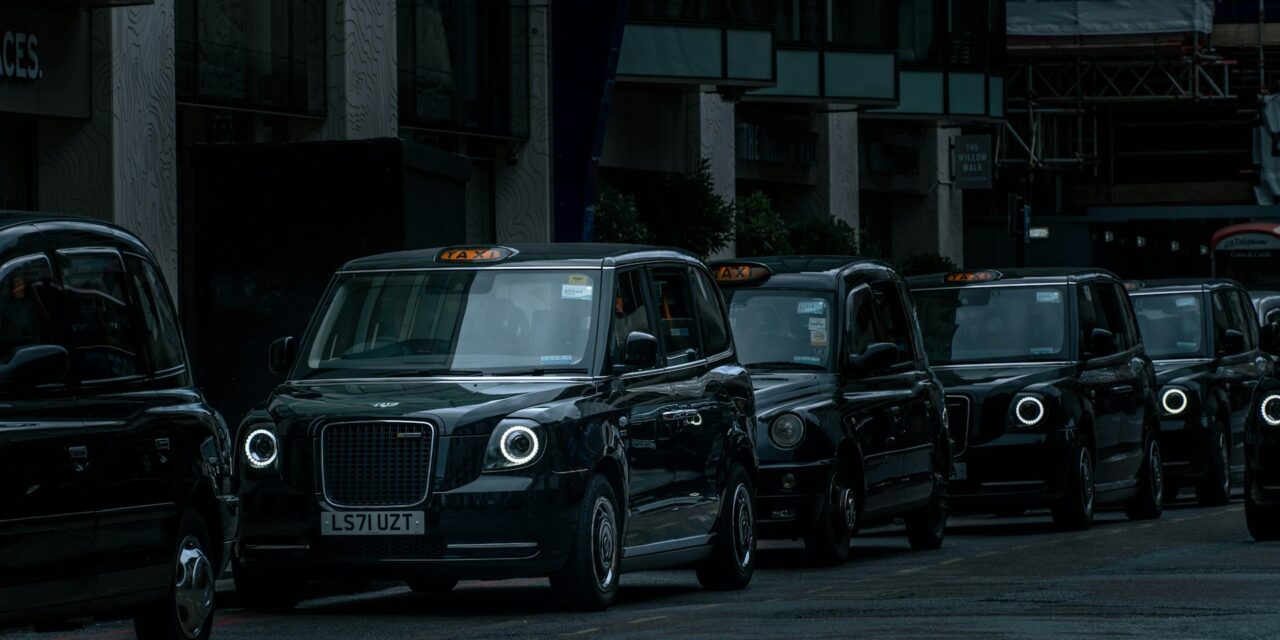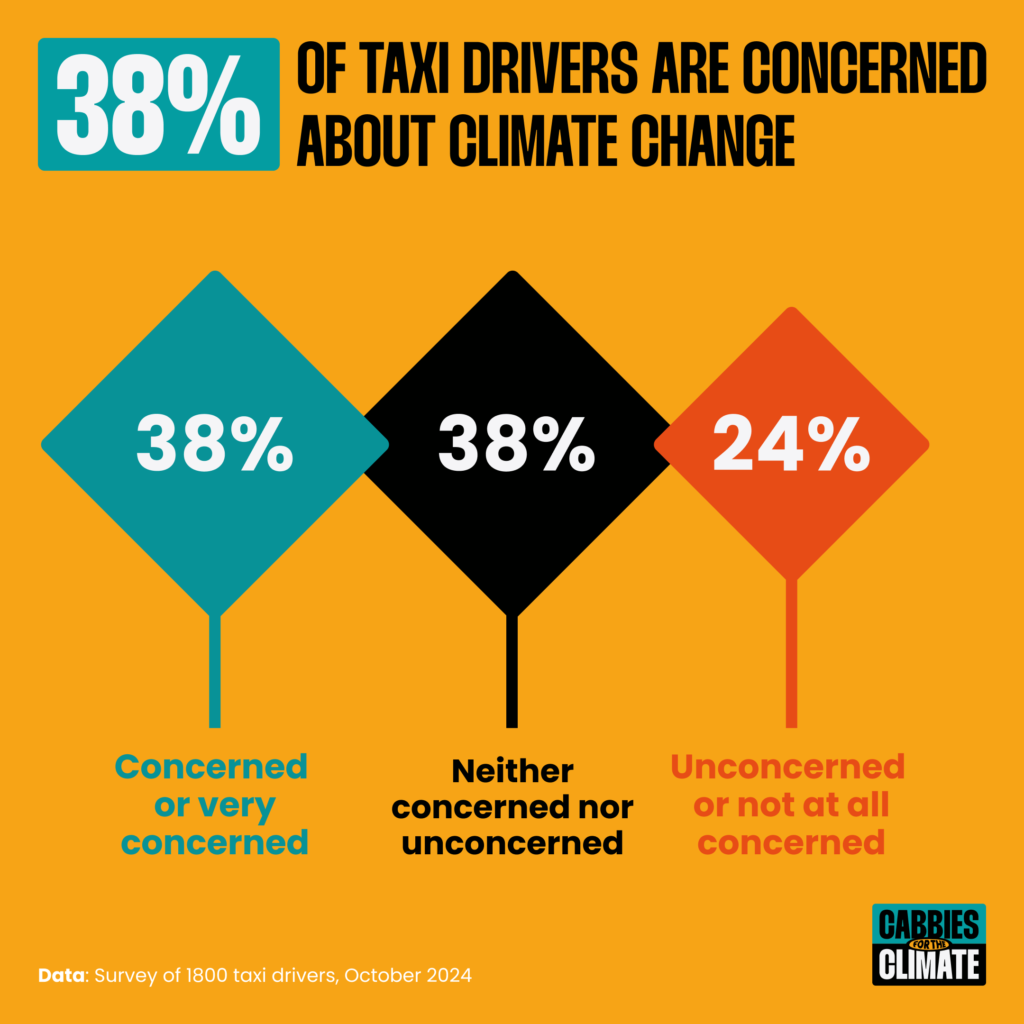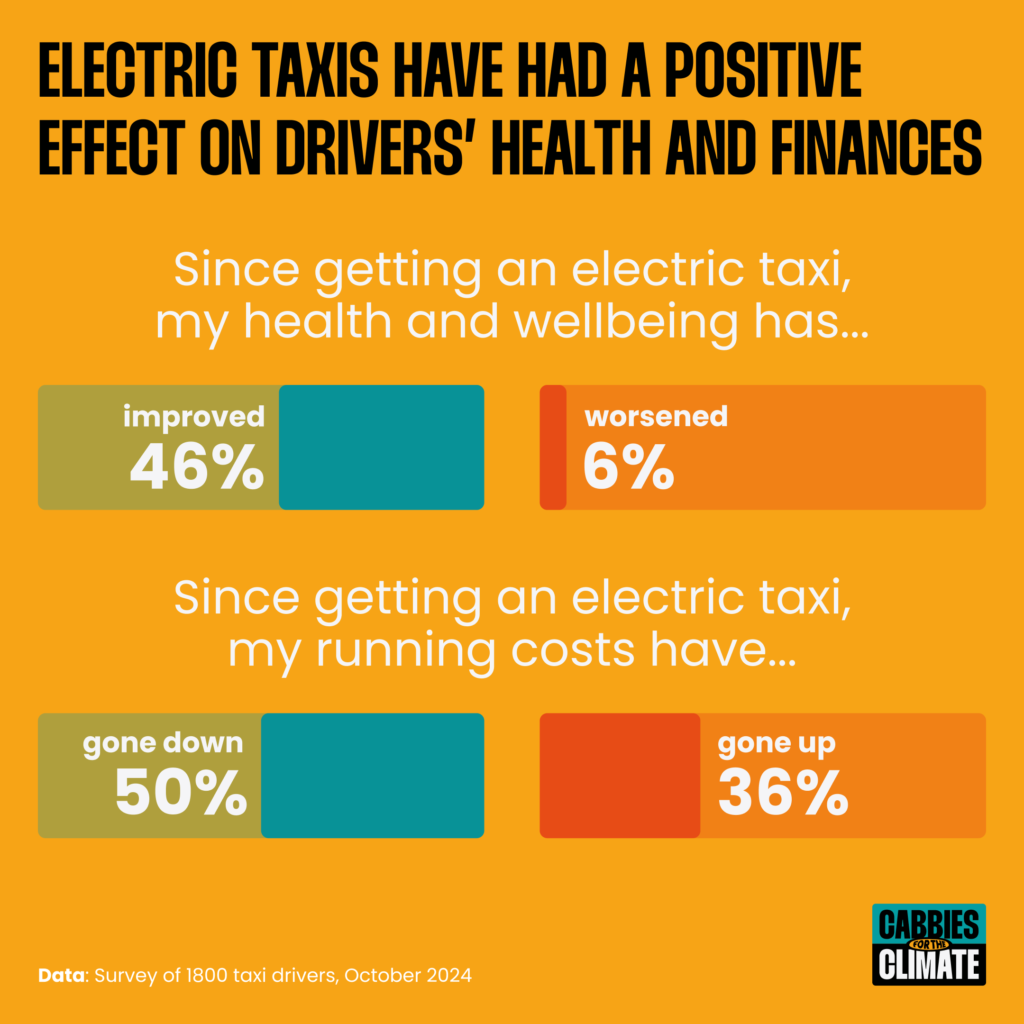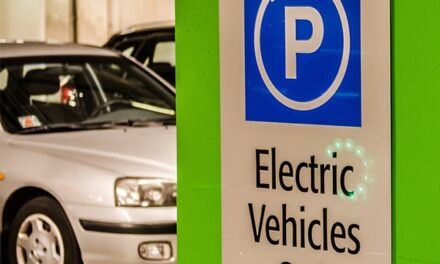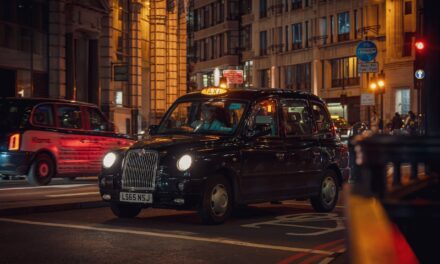Climate charity Possible has partnered with the Licensed Taxi Drivers’ Association (LTDA) to launch a new campaign called Cabbies For The Climate, overturning age-old stereotypes that black-cab drivers are not supportive of climate action.
Launching today at a public event in Trinity Church Square in Southwark, Cabbies for the Climate brings together taxi drivers as advocates for climate action, and calls for more support to transition the fleet of London black-cabs to being powered by electricity as quickly as possible.
Currently, around 60% of London black-cabs are electric, with 40% of cabbies still driving diesel cabs which are rapidly approaching their age limit with many due to come off the road in the next few years. A new survey conducted by the LTDA published today reveals that many of the remainder do want to switch to electric but are facing huge barriers in costs. 98% of drivers who have already made the switch prefer their electric taxi to a diesel one.
TfL has set a target for all London cabs to be diesel-free by 2035. This will primarily be achieved as a consequence of the fact that they now only licence electric vehicles, and the natural attrition of diesel cabs coming to the end of their lifespan by that date. But, without the necessary support for cab drivers to switch, many of them will be priced out of the industry once their diesel taxis are no longer running.
Advertisement
Today’s new campaign is calling for more support for cabbies to actively make the switch from diesel to electric.
Support used to exist for taxi drivers to transition to an electric vehicle. This includes the government’s plug-in taxi grant (PiTG) which offers a discount on the price of eligible taxis based on its zero-emission range. The grant previously gave a discount of up to £7,500 but has since reduced it to £6,000, and the government. has not guaranteed the scheme’s existence past April 2025.
Taxi drivers also previously could get rid of their diesel cars using the TfL’s taxi delicensing scheme, which removed over 4,000 older and more polluting vehicles from London’s fleet. Funding was also provided from TFL for an LPG Conversion Scheme to reduce their emissions. These schemes no longer exist.
Since 2018, all new taxis licensed in London have had to be electric. An electric cab can cost upwards of £73,000, while the diesel ones that remain in the fleet will soon age out of being eligible for use. At least 1800 diesel taxis in the next two years will need to come off of London’s roads as they hit their age limit, and without the right support for those cabbies to make the switch to electric, there will be fewer black-cabs across the capital.
The campaign also seeks to quash stereotypes of cabbies being opposed to climate policies. In fact, 90% of cabbies want to see less congestion and fewer private cars on the roads, and at least one-third of taxi drivers are concerned about the impact of climate change.
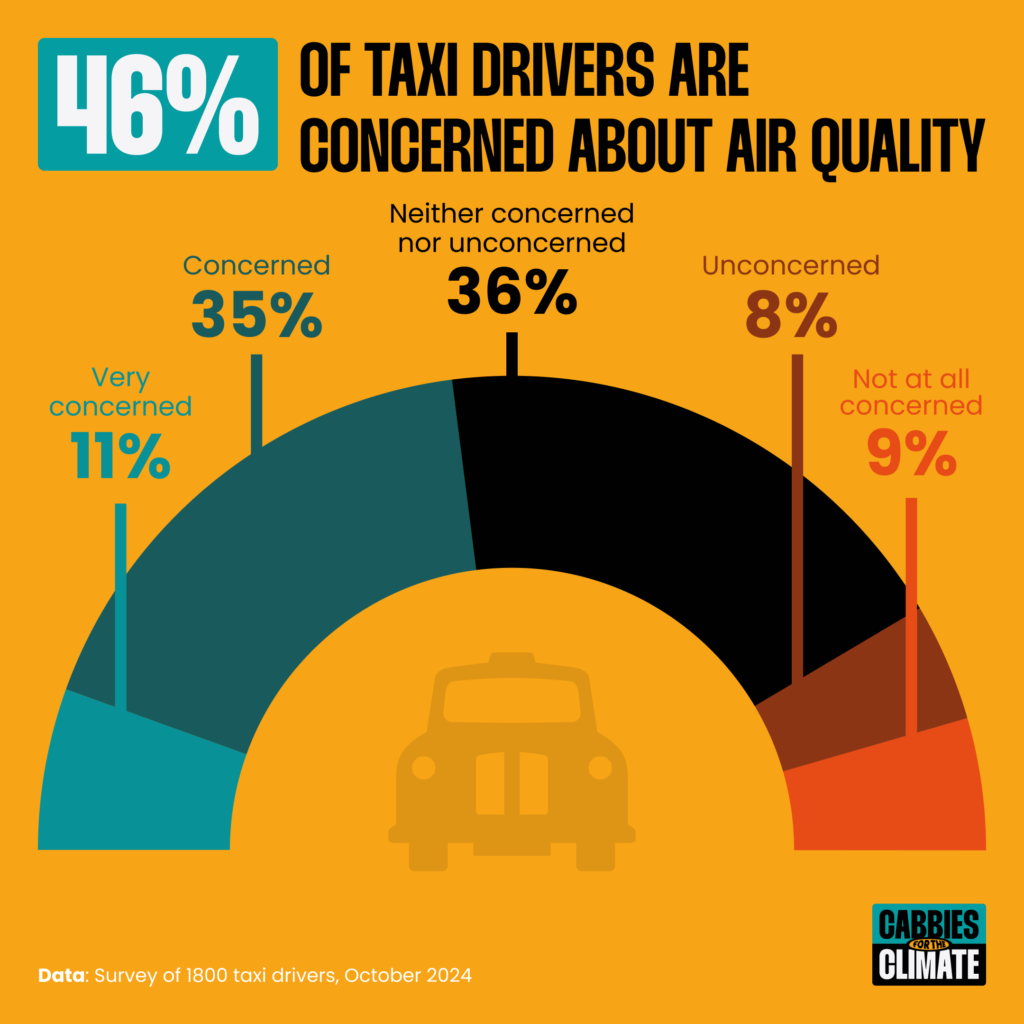
Mohammed Abdi, a licensed electric black-cab driver, said:
“Climate change is real. We all want to breathe clean air, live healthier, and for the city to be greener. That’s why I drive a green cab.
Advertisement
“I was one of the first drivers to switch to an electric cab with the help of a government grant, and driving an electric cab has been fantastic and cleaner for the environment and for me. An electric cab is absolutely the way forward, as long as they are affordable for people.
“All cab drivers should be able to get a green cab, but right now it’s just not possible for so many of my colleagues. They need that support to switch.”
Steve McNamara, General Secretary of the Licensed Taxi Drivers Association, said:
“No one knows more about London’s poor air quality and the need for action to address it than a taxi driver who sits in traffic all day long breathing it in. That’s why drivers are committed to this transition and doing their part to clean up London’s air, and why so many of our members have invested in zero-emission capable taxis, which now make up 60 per cent of the London taxi fleet.
“Cabbies are continuing to buy these expensive new vehicles and do the right thing, with little to no support from TfL or the government, but for many of those yet to make the switch, the sums simply don’t add up. With the number of licensed vehicles already at an all time low, and many diesel taxis due to hit their age limit and come off the road in the next few years, many drivers risk being left without access to an affordable cab, and no option other than to retire or find a new profession.
“Without prompt action from TfL and central government, this could prove catastrophic for London’s iconic black cabs.”
Advertisement
Izzy Romilly, Sustainable Transport Campaign & Research Manager at Possible, said:
“We are excited to launch this campaign in collaboration with the LTDA. Taxi drivers are sometimes stereotyped as being against climate action, or switching to cleaner vehicles, but we’ve found huge support for cutting traffic and going electric. Many cabbies are keen to move away from running a fossil fuel-powered taxi to a greener, cleaner mode of transport that will enable them to continue supporting their livelihoods while helping the climate.
“We need to cut traffic by at least 20% to stand a chance of meeting our climate goals, but for those who rely on their vehicles like taxi drivers, switching to a cleaner vehicle is the best option. Getting diesel off London’s streets is critical for Londoners’ health and wellbeing, and for the climate.
“With more government support, cab drivers would be able to afford to switch to electric cabs, continuing to provide much-needed transportation for the capital while also earning a living. Cabbies do care about the climate, they just need help to make that climate-friendly choice.”

